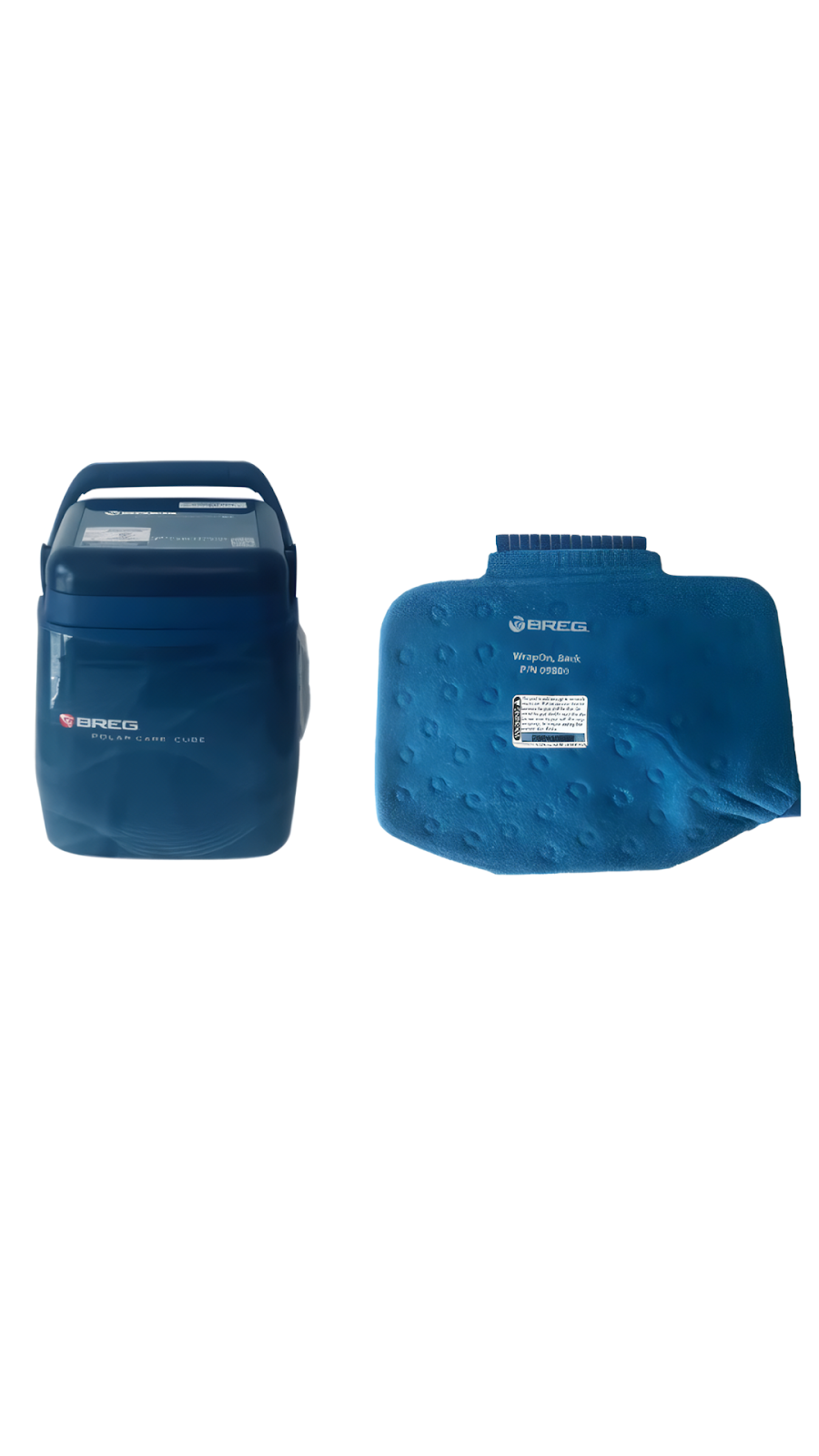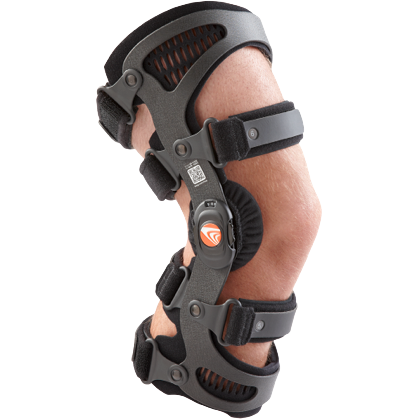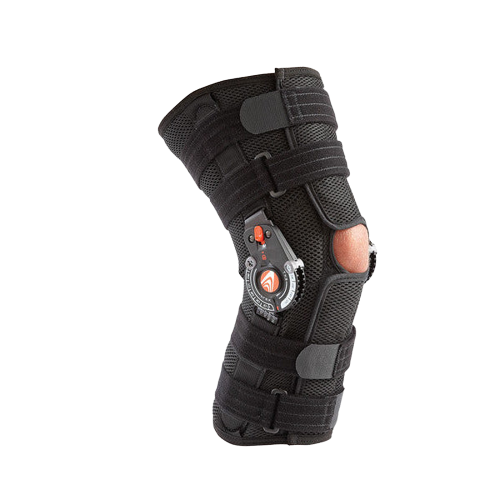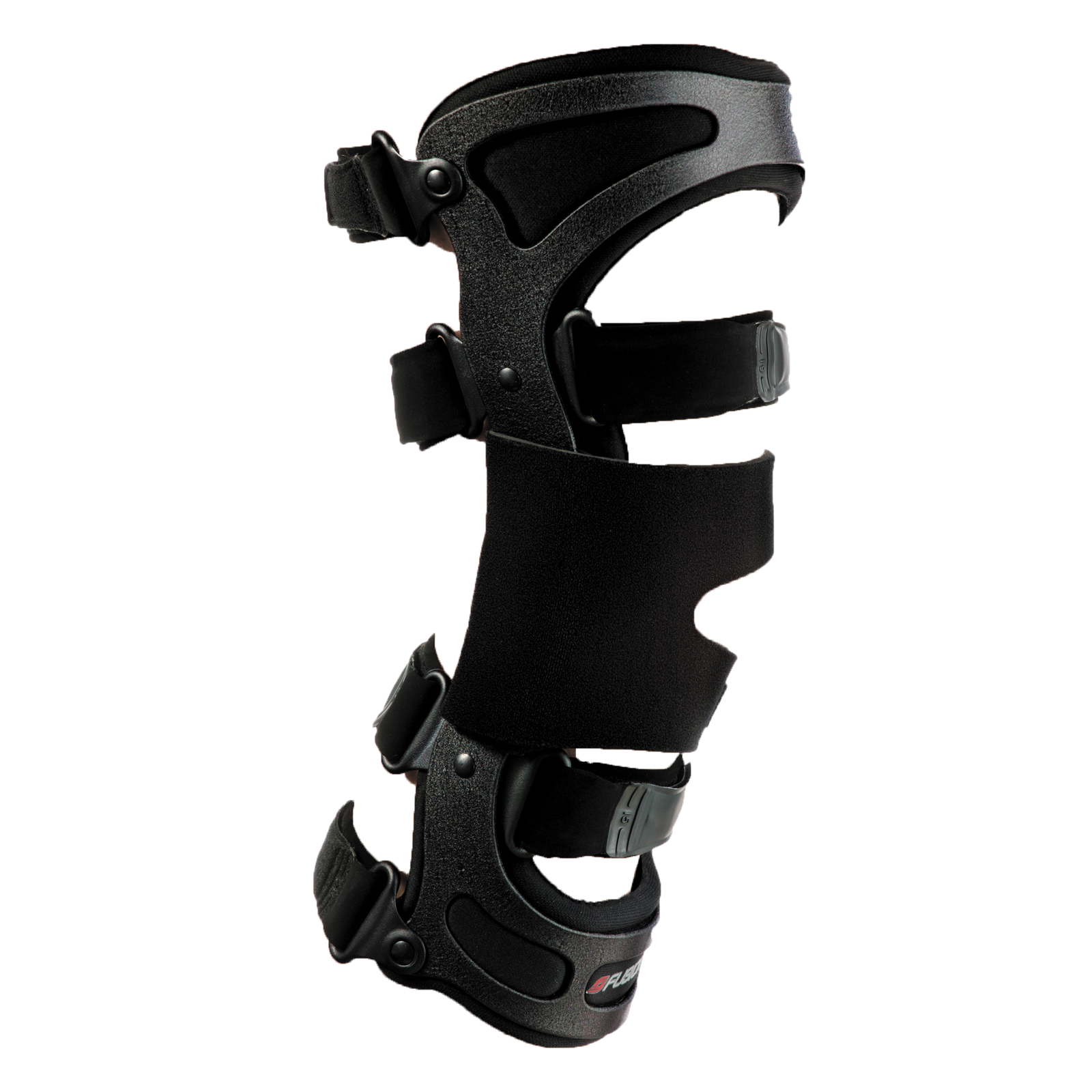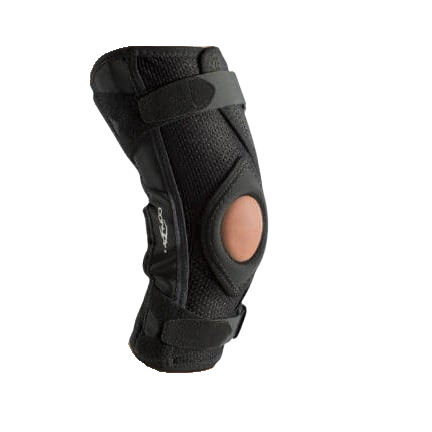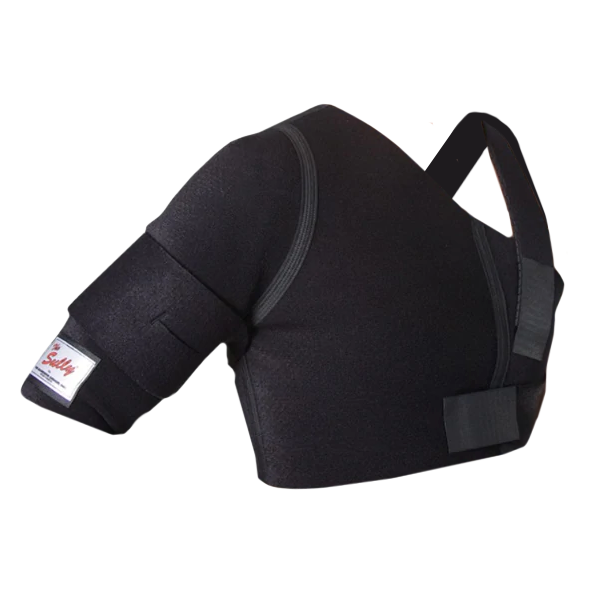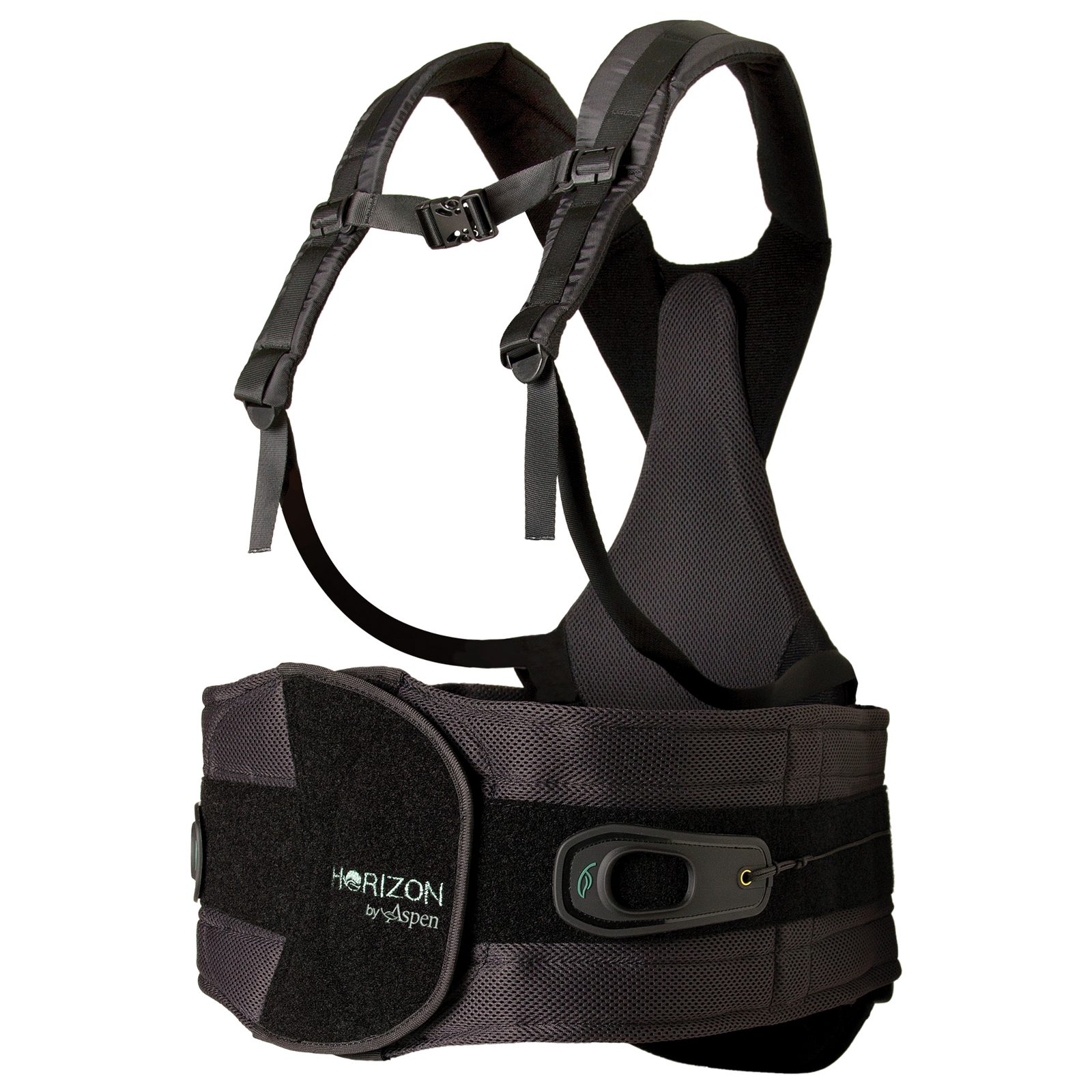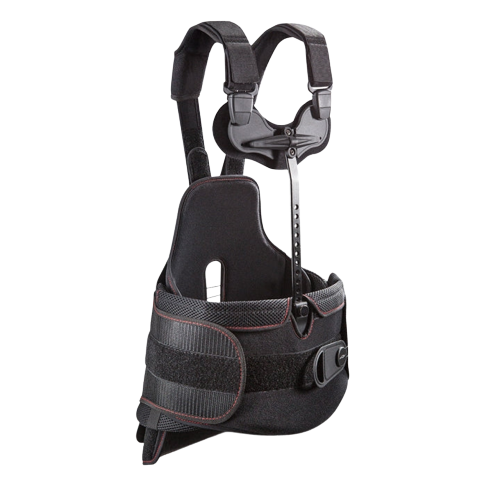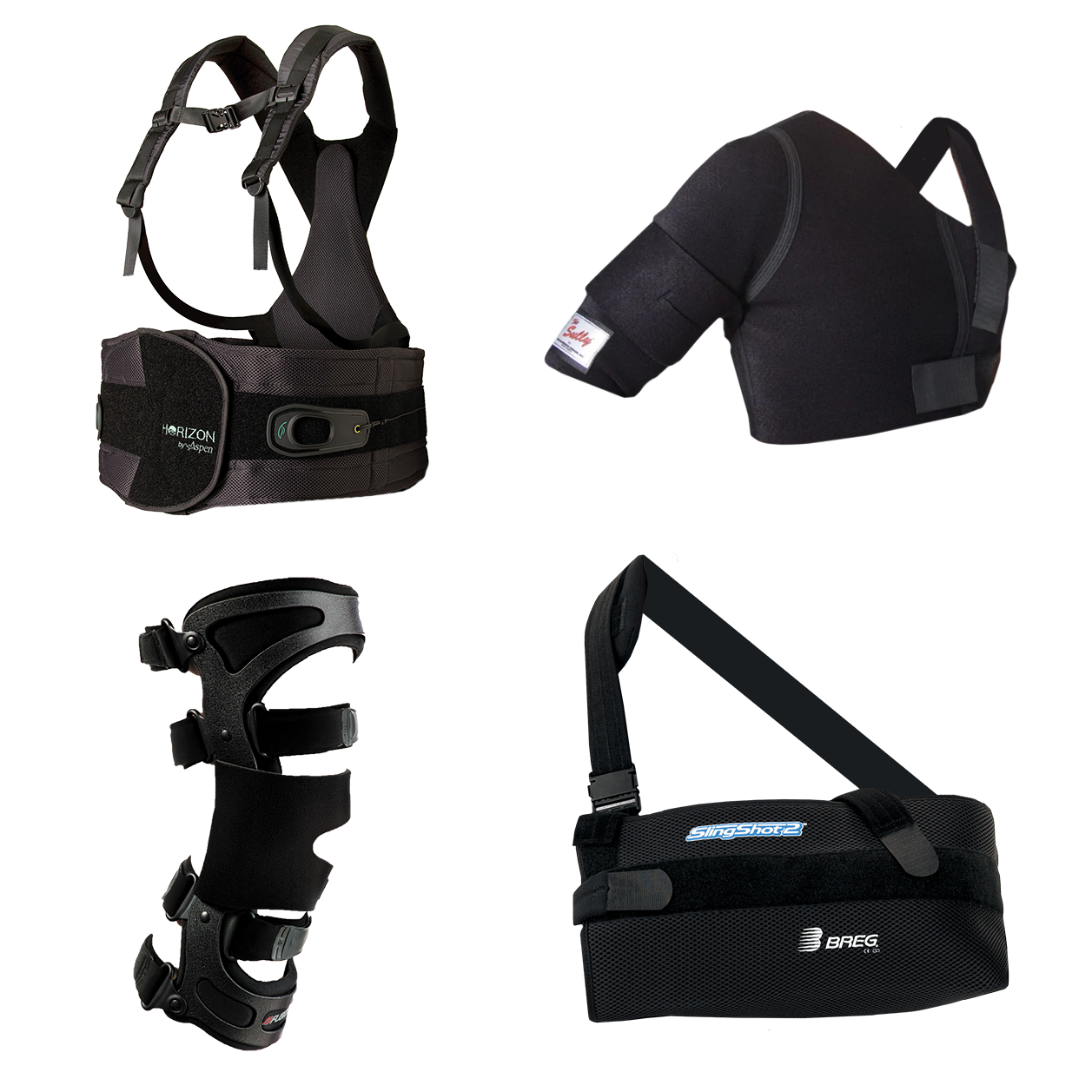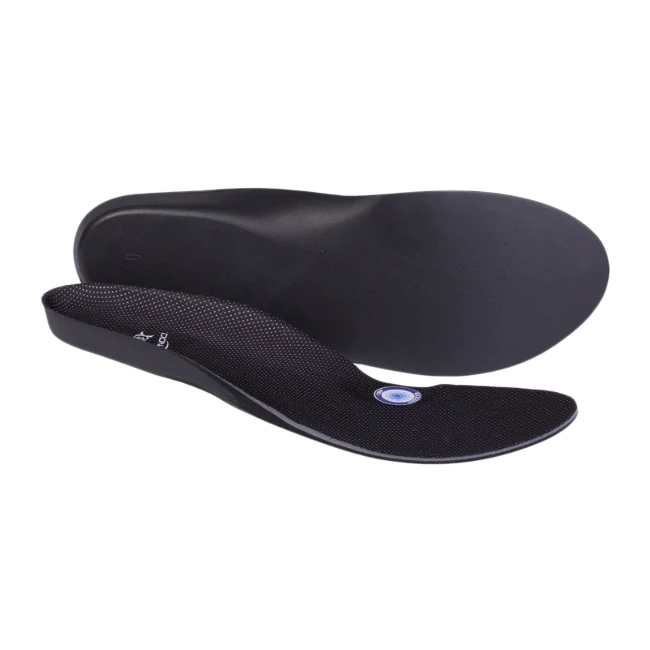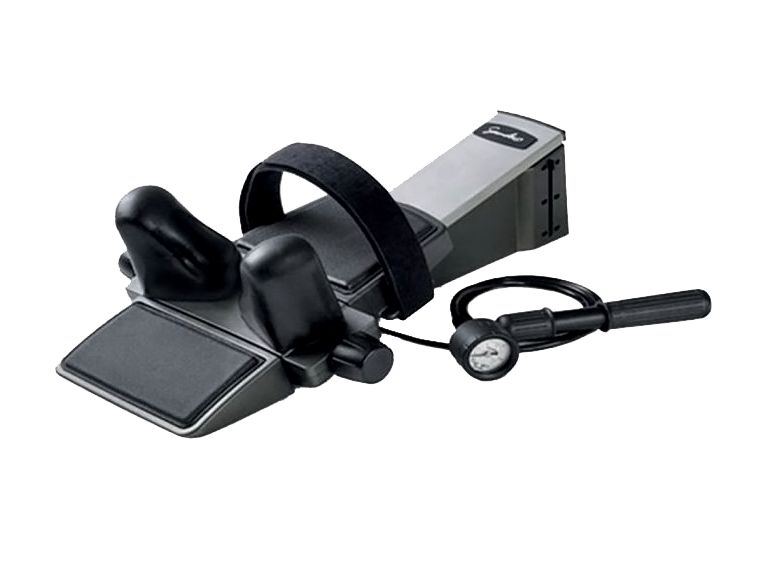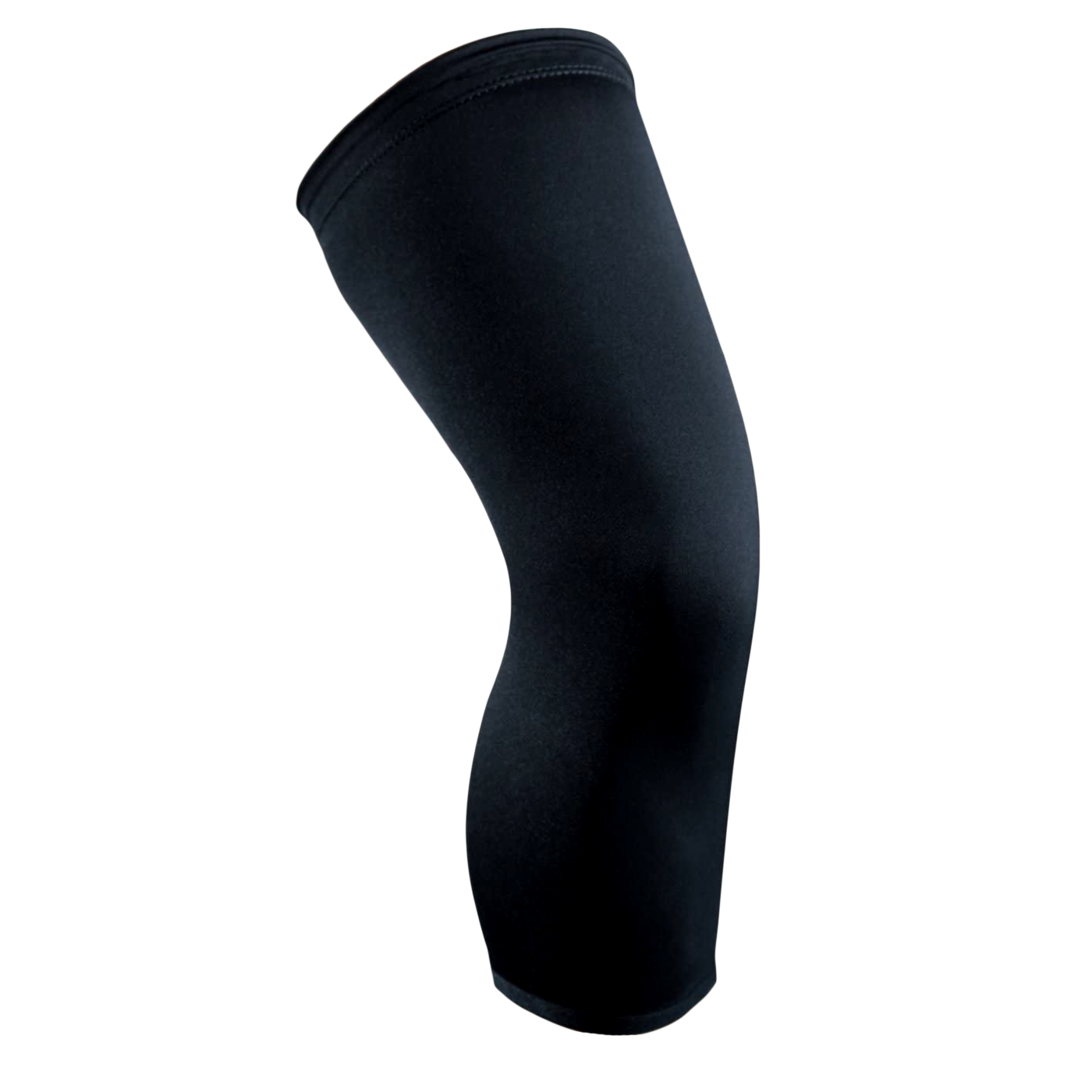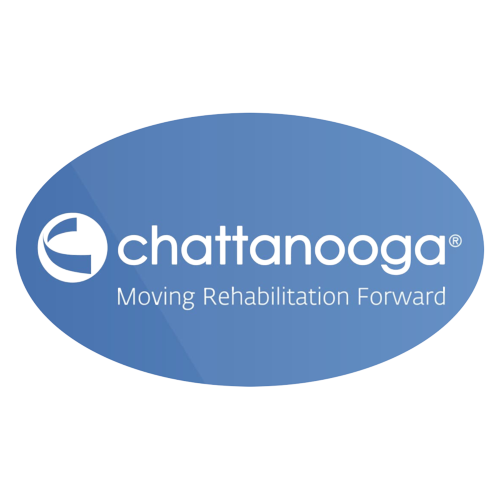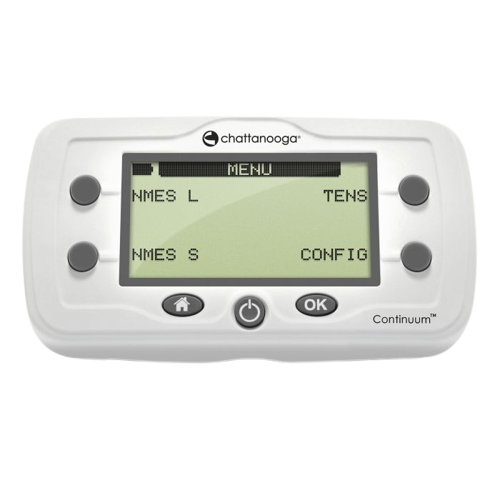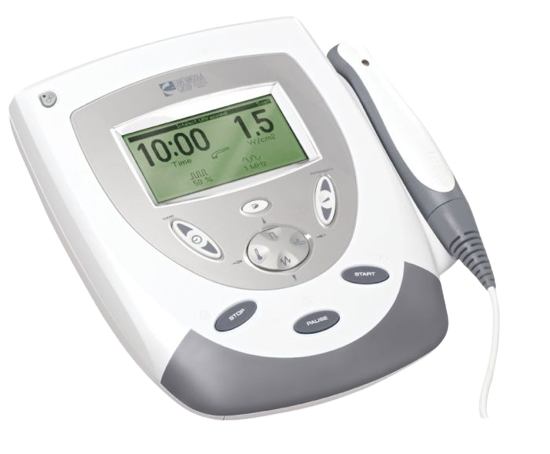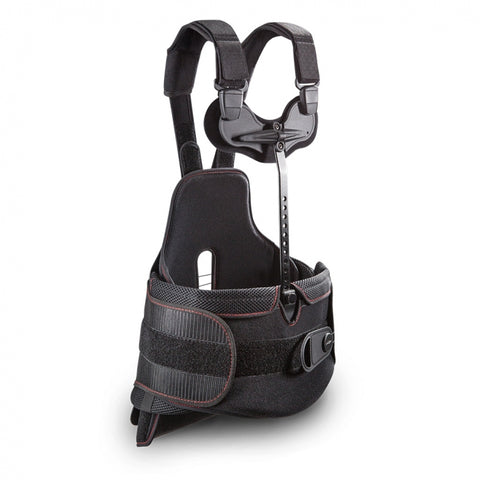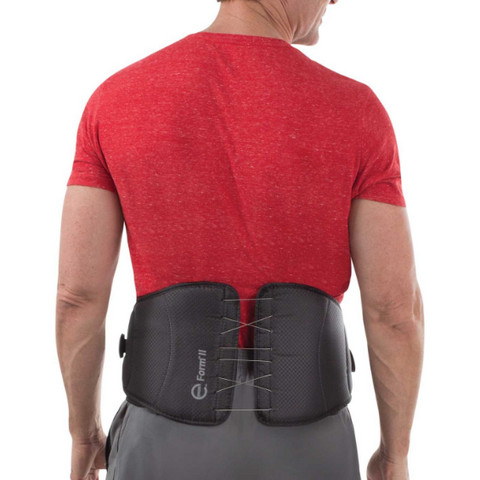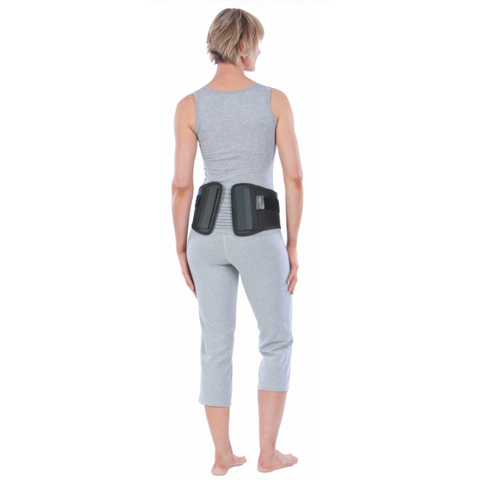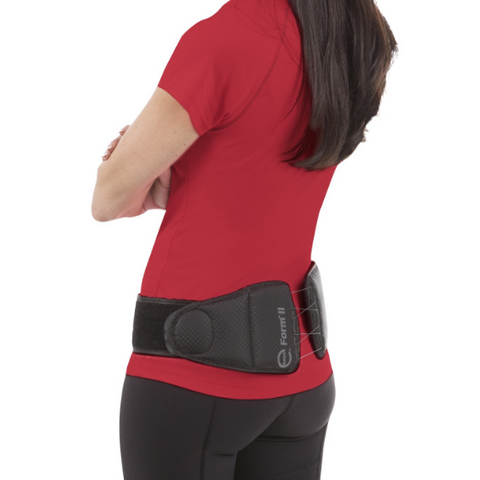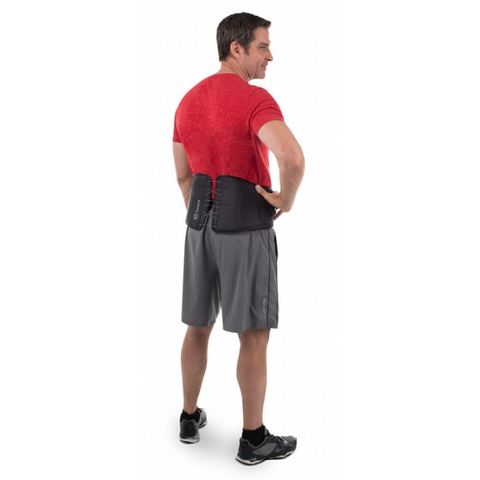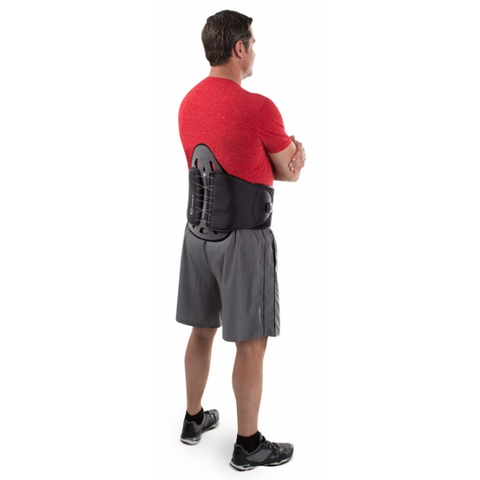Back pain, whether from an injury, surgery, or anything else, can make it a struggle to do even the simplest tasks, like picking something up off the floor or putting on your socks. For anyone suffering from back pain, the goal is to recover as safely and quickly as possible. Both abdominal binders and back braces can play a role in this, but what’s the difference, and which do you need?
In this article, we’ll compare an abdominal binder vs back brace, and help you choose the orthopedic support that will get you back on your feet safely, and make your whole recovery period more comfortable.
Whether you’re recovering from surgery, managing chronic back pain, or seeking extra support during intense workouts, this article will help you select the right device to enhance your comfort, mobility, and overall well-being.
What’s the Difference Between a Back Brace and an Abdominal Binder?
Understanding the differences between an abdominal binder vs back brace can help you make the right decision when it comes to the orthopedic support you need. Let’s first take a look at the characteristics of each device before we dive into the differences between an abdominal binder vs back brace.
What are Back Braces?
A back brace, or lumbar brace, is an orthopedic device designed to provide support and stability to the lumbar region of the spine. Typically made of elastic or rigid materials, these braces are contoured to fit snugly around the lower back, offering compression and reinforcing the natural curvature of the spine. Back braces are commonly prescribed for individuals dealing with lower back pain, spinal instability, herniated discs, or after spinal surgery.
What are Abdominal Binders?
Abdominal binders are specialized wraps or bands intended to offer compression and support to the abdominal area. Made of elastic or non-elastic materials, these binders come in various sizes to accommodate different waist measurements.
Abdominal binders are often used post-surgery or during the recovery phase after abdominal procedures, such as hernia repair or cesarean section, to provide gentle compression, reduce post-surgery swelling, and promote proper healing.
Comparing and Contrasting Abdominal Binders vs Back Braces
So, what are the differences between an abdominal binder vs back brace? While both devices offer stabilization and relief, they differ significantly in their purpose, design, and construction. Let’s compare the features and roles of an abdominal binder vs back brace.
Primary Purpose: What is Each Used For?
Abdominal binders offer compression and support to the abdominal area. They are most commonly used post-surgery or during the recovery phase after abdominal procedures, such as hernia repairs, tummy tucks, or cesarean sections. The gentle compression provided by abdominal binders helps reduce swelling, promote blood circulation, and support weakened abdominal muscles, ultimately aiding in the healing process.
On the other hand, how does a back brace work? Back braces are designed to provide support and stability to the lower back, specifically targeting the lumbar region of the spine. They are commonly prescribed for people dealing with lower back pain, spinal instability, herniated discs, or after spinal surgery. Back braces help reinforce the natural curvature of the spine, alleviate pressure on the lower back, and maintain proper spinal alignment.
Design and Construction Differences
Abdominal binders typically come in the form of wide elastic bands or wraps that go around the waist. They are made of stretchable materials to provide gentle yet consistent compression without restricting breathing or movement.
Rigid back braces are more structured and limit movement to a greater extent, making them suitable for severe spinal conditions or post-surgery recovery. Elastic back braces, on the other hand, provide a combination of compression and flexibility, catering to less severe back issues or activities that require some mobility.
Choosing Between a Back Brace or Abdominal Binder: Our Advice
Choosing between an abdominal binder vs back brace isn’t an easy decision. Both offer various types of support, and it can be tricky to know which is most suited for your needs. To help you make this important decision and get you back on your feet quickly and safely, we’ve put together some advice to point you in the right direction.
Your Specific Medical Condition or Need
The first step in choosing between a back brace or an abdominal binder is to think about your specific needs. If you are recovering from abdominal surgery, such as a hernia repair or cesarean section, an abdominal binder can provide gentle compression and support to promote healing.
On the other hand, if you are dealing with lower back pain, spinal instability, herniated discs, or have undergone spinal surgery, a back brace might be more suitable. Back braces can target the lumbar region, providing support and stability to the lower back, and can be particularly helpful in providing pain relief from these conditions.
Personal Comfort and Ease of Use
Both a back brace and an abdominal binder should fit snugly and comfortably, without causing irritation or restricting movement. Consider the materials used in the construction of the support, and opt for one that allows your skin to breathe, especially if you intend to wear the brace or binder for extended periods.
Plus, you need to be able to easily put on and adjust your support. Some back braces and abdominal binders come with adjustable closures or fasteners, making it easy to customize the level of compression and achieve a comfortable fit. Trying on different options and paying attention to how each feels will help you find the most comfortable option.
Recommendation from a Healthcare Professional
Before making a final decision, it's a good idea to talk to a healthcare professional, such as your physician, orthopedic specialist, or physical therapist. They have a good understanding of your specific condition and needs, and can help you choose the most appropriate support that aligns with your treatment plan and will help you heal safely and quickly.
Still Not Sure? Reach Out to Us Here at Ortho Bracing and We’ll Help!
At Ortho Bracing, we specialize in orthopedic back braces. We carry a range of braces from leading, trusted brands, including Donjoy back braces, and only stock products we 100% believe in. If you’re still not sure whether a back brace is right for you (or which one you need), we’ll happily help point you in the right direction.
As well as helping you find a suitable back brace, we can provide you with other tips and advice, like how to wear a back brace properly. Our team also has expertise in many other orthopedic practices, including cold therapy. If you want to know when you should use cold therapy, need help finding the best cold therapy machine, or want to learn the difference between Donjoy vs Breg products, don’t hesitate to ask!
We’re available 24/7 and will do everything we can to help you on your quest to heal or find post-op pain relief, the natural way.
Wrapping Up Our Comparison of the Abdominal Binder vs Back Brace
While abdominal binders and back braces are similar, they also have some important differences. Binders serve as a gentle yet effective compression wrap designed to provide support and promote healing after abdominal surgery. It has the ability to reduce swelling, manage scarring, and enhance stability during physical activities.
On the other hand, the back brace targets the lumbar region of the spine, offering support and stability for people experiencing lower back pain, spinal instability, herniated discs, or recovering from spinal surgery. Its customizable compression and potential for controlled mobility make it ideal for those seeking relief from lower back-related conditions and support during physical activities.
If you decide that a back brace is your best option, you’ll find top-rated braces at Ortho Bracing, for more competitive prices than even your doctor can offer. With our 24/7 support, you have a trusted partner who can help you take this important step in your rehab or healing journey. Explore Breg products, Donjoy products, Aircast products, and Polar ice machines, with next-day shipping available for added convenience.
When it comes to healing your back, you can’t afford to take risks. Recover from back pain quickly and safely with a quality back brace from Ortho Bracing.

